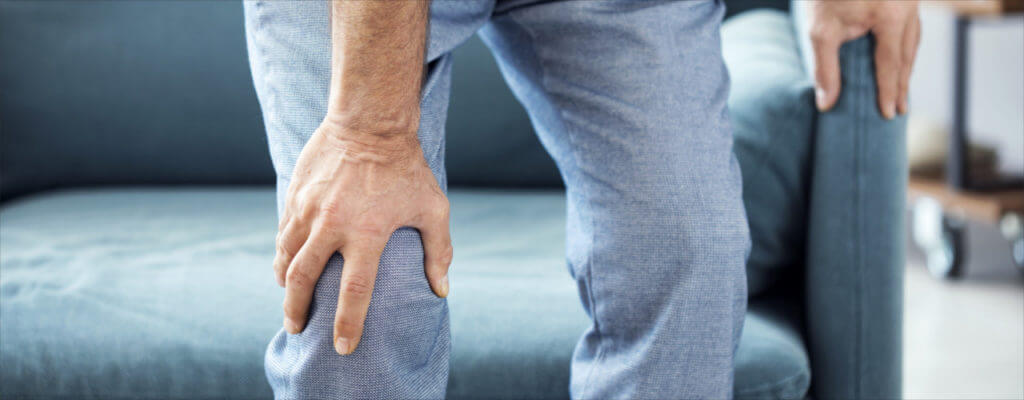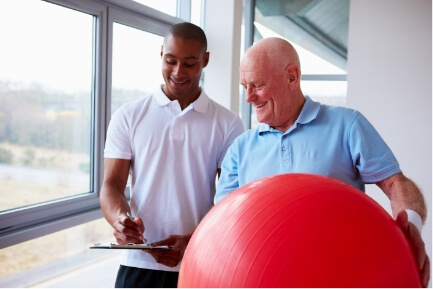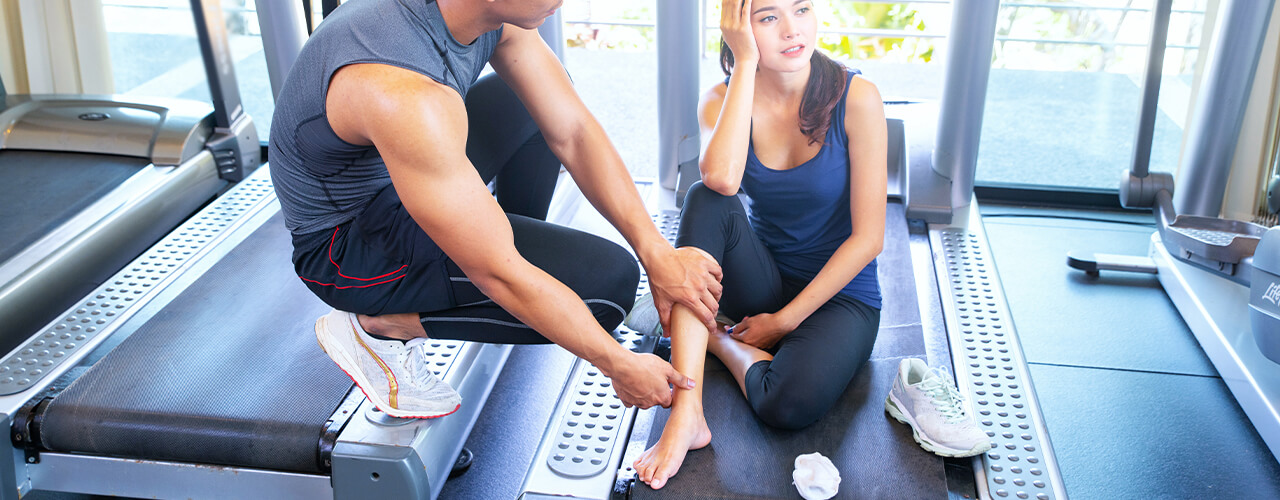Hip and Knee Pain Relief
Get Started on the Ideal Treatment for Hip and Knee Pain
Everything You Need to Know About Hip and Knee Pain
Do your knees feel sore, or do they feel as if, without warning, they could buckle under you? Do sharp hip pains find it hard to get up in the morning, walk about during the day, and lay down at night?
Hip joint pain and knee pain, especially if you’re dealing with both, can seriously interfere with your life. Whatever could be uncomfortable for you, physical therapy may help you get safely and easily to the source of your problem without the need for harmful drugs or surgery. To alleviate your hip and knee pain entirely, make an appointment with Pace Physical Therapy in San Jose, CA, saving you the need for potentially harmful medicine or surgical correction.
Why am I experiencing hip and/or knee pain?
Hip and knee pain may be experienced separately or together, but it is important to remember that your knee bone is related to your hip bone, as the old saying goes, because what happens to one affects the other. Your hip is a ball-and-socket joint that serves to support your upper body’s weight, relying on many muscles and tissues to keep it mobile and secure so it can function properly. The knee is a hinge joint, limited to forward-and-backward movements. Your knees collectively carry more weight than the hips, 6 times the weight of your body while doing a squat. Proper rotation of both your hips and knees facilitates dynamic movements without falling over, allowing you the power to stand, walk, run, and dance.

Pain experienced in the hips and/or knees may originate in the joints themselves, but in another part of the body, it may also be a product of an underlying condition. Your hips and knees, for example, are part of the same kinetic chain, meaning they make up a mixture of weight-bearing joints that must work in conjunction together in order to function correctly for your body and posture. An issue with your knee joint may then transfer irregular forces to your hips, and vice versa. Stress and deterioration could be put on another if one element of the kinetic chain is out of equilibrium.
Understanding hip and knee pain:
The hips and knees suffer the same illnesses, conditions, and accidents many times. Overuse injuries such as tendinitis and chronic muscle strain, for example, are common in both hips and knees since they are frequently used in both joints. Acute injuries, such as sprains, strains, and dislocation, are also prone to both.
Referred pain from a pinched sciatic nerve may also cause hip and knee pain, as the nerve passes through both regions. Abnormal pressures and early wear-and – tear in your hips and knees can be caused by imbalances in your posture or gait, resulting in painful arthritis symptoms.
One joint or the other may be unique to certain painful conditions. Cartilage injuries known as labral tears are specific to hip pain, while a specific injury affecting the knee joint is inflammation of the bursa sacs known as bursitis. Painful injuries causing weakness in the hips, however, can also damage the knees. Without you realizing it, tight hip flexor muscles and weak muscles of the gluteus medius will cause the hip to rotate inward. As stress is exerted on the knee or kneecap, this can cause painful problems such as iliotibial band friction syndrome or patellofemoral stress syndrome.
Find hip and knee pain relief today:
At Pace Physical Therapy, physical therapy exercises will help to significantly minimize the hip and knee pain. In addition to evaluating your stance, posture, gait, and range of movement, our San Jose, CA physical therapists will test your hip and/or knee for signs of misalignment or structural damage. Our physical therapist will alleviate your discomfort in several ways, saving you the need for potentially dangerous medicine or surgical correction.
Our physical therapist will prescribe a physical therapy plan for you after your physical exam is complete, aimed at relieving unnatural stresses and strains. They will also concentrate on normalizing the joint function so that you can easily get back to living life.
Targeted exercises designed to alleviate joint pain and stabilize the weak hip and/or knee will be given to you. For example, research has shown that those suffering from patella pain (kneecap pain) appear to respond better to exercises that focus on strengthening both the hips and knees, rather than only concentrating on the knees alone. The exercises will differ depending on the condition.
Exercises designed to strengthen the heart, including your lower back muscle groups, lower abdominal muscle groups or pelvic muscles, may also be provided to you. Core exercises are aimed at straightening the stance on both sides of the body and equalizing the weight load. If our physical therapists consider fit, other advanced therapies can also be added, such as mobilizations to enhance joint mobility or other treatments of soft tissue that alleviate discomfort and facilitate the healing of weakened hips and/or knees.To meet with one of our committed San Jose, CA physical therapists, make an appointment today at Pace Physical Therapy. It’s time to take a stand against the agony of your hip and knee-to start today on the road to long-lasting pain relief! Your hips and your knees will be pleased that you’ve done it!


